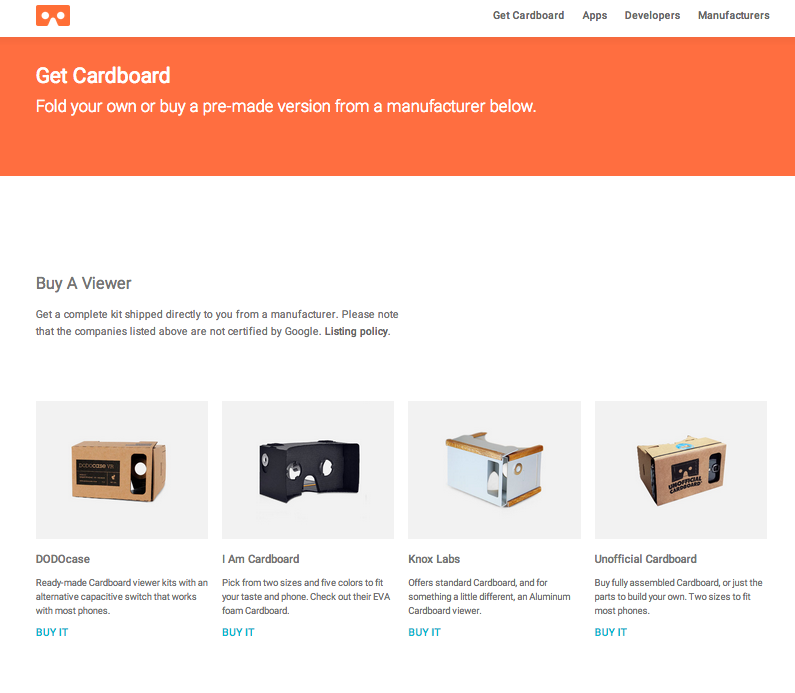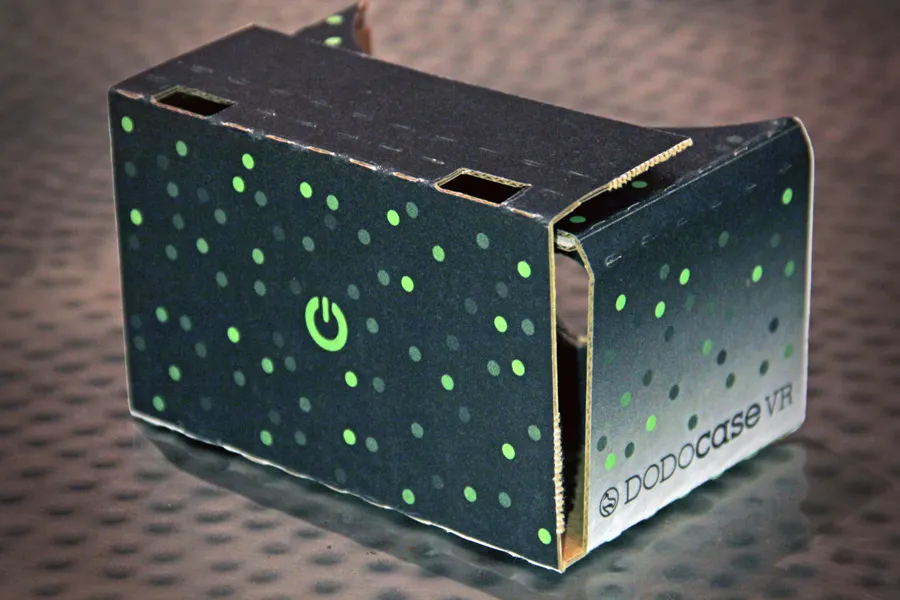As part of a new vendor partnership Google has worked out, DODOcase, along with three other vendors, have officially become featured vendors for the entry level VR headset. DODOcase coming fresh off a highly successful Kickstarter campaign, DIY VR, which aims to bring affordable, open source, web-based VR to backers by Christmas.

Since it’s announcement at I/O this year, Google had only made Cardboard officially available as a set of instructions as to how you could build one yourself from simple, readily available parts. Problem was that most people did not have the time to go out, buy all the parts, cut out the cardboard, and assemble the device. It was a time consuming process that hindered it’s potential. Thats where DODOcase, as well as I Am Cardboard, Knox Labs, and Unofficial Cardboard come in. Said Craig Dalton, CEO of DODOcase of the annoucement, “we are excited to drive the Smartphone VR market and to be endorsed by Google as key member of this industry!”
These partnerships come on the heels of the GearVR release this week, which ushered in a new era for mobile VR. However, the GearVR is still labeled as an “Innovator Edition” meaning that Samsung knows that the platform still needs more developers creating content, which is where Google Cardboard helps the ecosystem. The cheaper and more accessible the hardware, the easier it is to get people developing for the platform.
Google cardboard also earned its ‘stripes’ yesterday when Jack White and Jaunt released a new app titled Jack White: Third-D on the Google Play Store, where the experience is available exclusively for now (there are plans for a GearVR and Oculus Rift release in the future). The app allows users to see Jack White in concert “in a way no one ever has.”
Last month, when we wrote about DODOcase’s DIY VR Kickstarter the project was a little over half way to its original $25,000 goal. Since then, the project has blossomed, generating over $62,000 from backers along the way, and blowing past it’s first two stretch goals. This success means that the project will be able to grow as planned, and a bootstrapped version of the Mobile VR open source development platform will be made available in the future. DIY VR hopes to play a major role in helping VR receive widespread adoption, acting as a low cost entry point for curious developers.


























